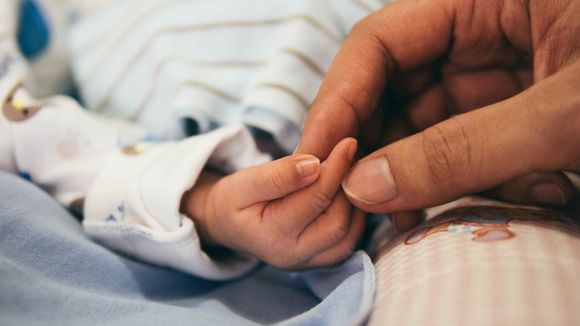Myths about postpartum recovery - part 2
In the first part , we commented on some of the most common myths about postpartum recovery. They are associated with speed of recovery and weight, which usually bothers women and bring them additional stress. Here are those myths:
- If you do not have any symptoms, you do not need to have a routine check-up
- 6 weeks is enough to recover after childbirth
- You need to regain weight from before pregnancy
First of all, it is important to know that both pregnancy itself and postpartum recovery take place strictly individually, and you should not compare yourself to others. No matter how you gave birth, the first six weeks after birth are considered a period of "recovery". Even if you went through the pregnancy slightly and gave birth without major problems, the body was stressed to the limit and needed time to resume.
In many women, more time is needed, so patience is important, as well as balanced nutrition and sleep both during pregnancy and then, as far as possible with a little baby. [ref. 1]
Myth 4: Pain during sex, prolaps and other pelvic floor problems are 'normal' after birth
Dysfunction of the pelvic floor is the inability to relax properly and coordinate the muscles of the pelvic floor. This type of problems occur often after childbirth, given the involvement of this musculature, intestines, bladder or uterus throughout the process and their weakening afterwards.
The five most common conditions in this group are the urgency/urgency of urination; stress urinary incontinence; constipation, pain when moving the intestine or feeling of incomplete defecation; pain in the back, pelvis or in sexual intercourse; prolapse of the uterus or vagina. [Ref. 2]
Although they sound terribly unpleasant, each of these problems can be overcome with the appropriate measures such as physiotherapy and rehabilitation, proper diet, light exercise and other means.
The same applies to diastasis, which is a weakening of the abdominal muscles of pregnant women and after childbirth. This common problem can also be corrected with light exercise, but necessarily after consulting with a doctor.
Myth 5: You're a bad parent if...
Here you can finish the sentence with many examples such as: "do not breastfeed the child", "do not give sweets to the child", "I do not let him play on the phone", "I do not buy him everything he wants", "I do not let him play with other children", "I don't let him come out late" and thousands of other examples.
Parents know exactly what we mean. However you finish the sentence, you have always gone through the process of leaving work, pregnancy and breastfeeding before, doing more housework and childcare, illness and worriedness about every new thing... In all these situations , you sacrifice yourself and your time to be available 100% of the time and give your child the best, as you imagine it.
Finally, another mother or father appears, or grandparents who begin to question you and compare your way of raising your child with theirs. This can stress many new parents and is completely unnecessary. Giving unsolicited advice too, so set clear boundaries for these things and do not let everyone interfere in the harmony of your family. Over time, parents and children will understand which solution was right and what was not.

Myth 6: Postpartum depression is a must
There is no doubt that having a baby is a life-changing experience. Almost every mother faces bouts of anxiety and confusion due to raging hormones, lack of sleep and the struggle to adjust to this little new person at home. These sensations are normal and short-lived, but if you have symptoms of postpartum depression – including feelings of constant hopelessness, sadness, isolation, irritability, worthlessness or anxiety – more than two weeks after birth, talk to your doctor.
Do not be ashamed and do not feel alone: postpartum depression is not your fault and affects approximately 1 in 4 new mothers. An effective way to feel better so you can take care of yourself and your baby is to talk to a professional who can help. Talking to a loved one, partner, or helping another mother can also be crucial to normalizing things.









